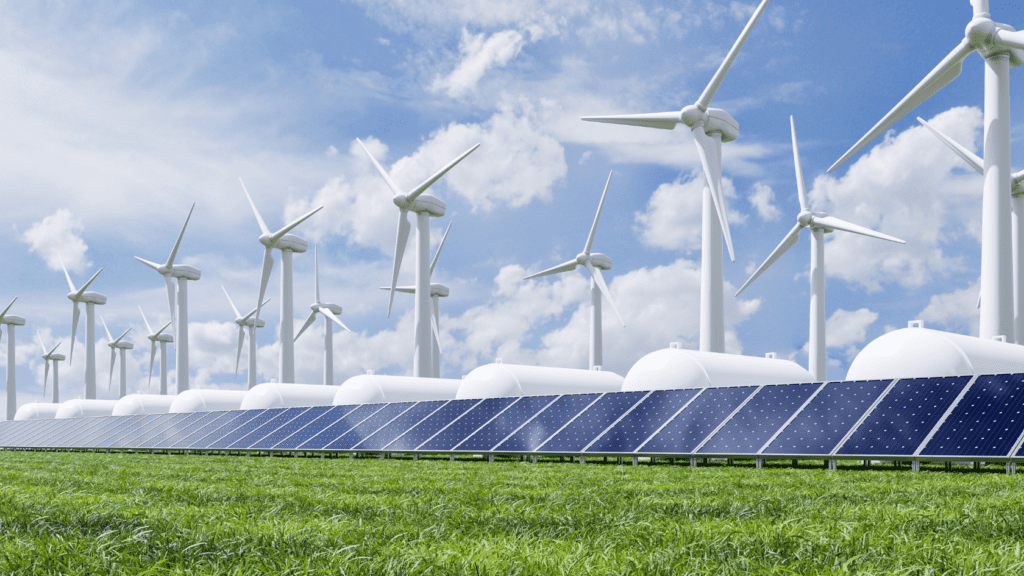There Is Still a Business Case for Investment in Clean-Energy Equipment

March 2, 2025
Private-sector investment in clean-energy equipment and efficiency technologies will continue in 2025, and that means vast opportunity for the equipment finance industry, according to Patricia Voorhees, a director at The Alta Group. In a recent article in The Monitor, she takes a closer look at the market-based dynamics driving that investment, including an exponentially increasing demand for electricity.

“The expansion of data centers—now supercharged by artificial intelligence—the reshoring of manufacturing and a spike in crypto mining … have driven a shift in the trajectory of power consumption growth in the U.S.,” Voorhees writes.
She cites an October 2024 report by data and analytics provider Wood MacKenzie that points to a fundamental shift in the relationship between GDP growth and electricity demand growth.
During the 2010s, the report states, the economy expanded by a cumulative 24%, while electricity demand remained unchanged. That seven-decade-long relationship between growth and energy consumption is reversing, and American utilities face a steep climb to be able to meet expected demand growth of 2% to 3% per year.
This trend was further amplified in a 2025 analysis and forecast by the International Energy Agency, which states that global electricity consumption is forecast to rise at an unprecedented rate in the next three years, and that the predicted increased consumption would mean, “adding more than the equivalent of a Japan to the world’s electricity consumption each year.”
As Voorhees points out, increased demand will necessitate increased efficiency efforts.
“As heightened demand puts pressure on the price of power, regulators and businesses will need to focus on energy efficiency. This will drive increased investment in batteries for energy storage and energy efficiency equipment for homes and commercial buildings,” she writes. “Battery storage has the potential to drive grid efficiency, and to take pressure off the grid both in front of and behind the meter. The incentive posed by rising energy prices will lead to increased innovation in battery technology in the near-term at every level of the energy supply chain.”
For example, the battery energy storage system market, estimated at over $700 million in 2023, is expected to grow 30.5% annually through 2030. according to a market analysis by Grand View Research.
“Understanding how to effectively finance clean-energy equipment requires EF firms to look strategically at many aspects of their business, including risk management, legal resources, asset management and more,” she writes. “There are plenty of reasons to continue to invest in this work in 2025 and beyond.”
A Global Effort
While the energy transition and government investment in fighting climate change may not be priorities for the Trump administration, U.S. energy security and independence remain top of mind, according to Voorhees. Cleaner energy technologies such as nuclear and solar will be key to achieving the new president’s goal of becoming the world leader in energy production.
The global transition to clean energy represents a significant opportunity for the U.S. equipment finance industry. While the $18 trillion in projected financing for energy transition equipment worldwide by 2030 won’t all flow to U.S. firms, they are well-positioned to secure a substantial share. As businesses invest in cleaner technologies and infrastructure, equipment finance providers will play a critical role in enabling this shift.
The global transition to clean energy represents a significant opportunity for the U.S. equipment finance industry. While the $18 trillion in projected financing for energy transition equipment worldwide by 2030 won’t all flow to U.S. firms, they are well positioned to secure a substantial share. As businesses invest in cleaner technologies and infrastructure, equipment finance providers will play a critical role in enabling this shift.
Most of the companies that must transition their operations to meet zero-carbon standards operate on a global stage, she adds. Many of them now see clean energy not as a government mandate, but as a competitive advantage.
Key Questions for Equipment Finance Leaders
Voorhees points to another critical consideration: A rising number of climate-related disasters will directly impact capital expenditure decisions. She advises industry leaders to look at their existing client base and ask themselves the following:
- How will these dynamics impact my customers in the coming years?
- How are they thinking about energy, efficiency and equipment?
- What capital expenditures might be needed to respond to these trends?
“The investment in climate-focused equipment is driven by a diverse array of dynamics,” not all of which depend on U.S. government policy, Voorhees writes. “This is an area that equipment finance leaders should continue to examine and learn about as we enter 2025, and promises to be a massive space for investment and innovation in the coming years.”
The Alta Group stands ready to assist clients in implementing market-entry strategies for clean-energy and efficiency equipment that are rooted in best practices. Our advisors are closely watching the rapid developments in global public policy and emerging technology that are driving this evolving market. Reach out to us to learn how we can help with:
- Market entry strategy
- Equipment risk management advisory and support
- Funding strategy
- Due diligence support
- Strategic alliance development
Patricia Voorhees is a director with The Alta Group and chair of the ELFA Climate Finance Working Group. She has written and presented widely on the market opportunity for equipment finance for projects that reduce carbon emissions or mitigate the environmental impact of greenhouse gas emissions. She was the lead author of the ELFF Research Report “Climate Finance: A Massive Commercial Opportunity for Equipment Finance.”
Get Alta Insights,
written by our advisors delivered to your inbox.
By submitting this form, you are consenting to receive marketing emails from: The Alta Group, http://foresight.agency/. You can revoke your consent to receive emails at any time by using the SafeUnsubscribe® link, found at the bottom of every email. Emails are serviced by Constant Contact